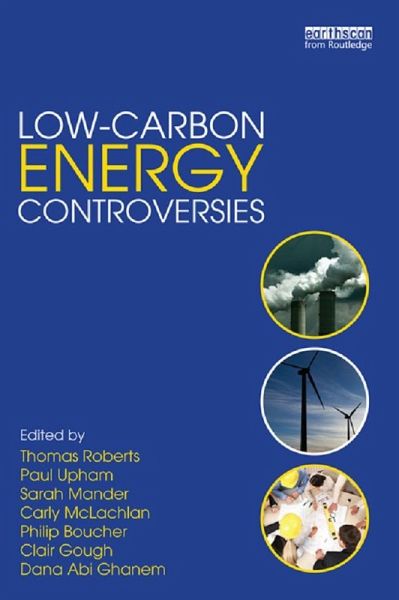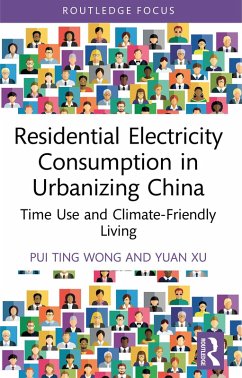
Low-Carbon Energy Controversies (eBook, PDF)

PAYBACK Punkte
71 °P sammeln!
Governments, big business and communities are coming under increased pressure to develop low carbon energy supply technologies. Within the context of the climate change debate a delicate balance has to be reached between local environmental protection and our need for reliable low carbon energy.This books brings together ten years of research conducted by the Tyndall Centre for Climate Change Research and uses a range of case studies from carbon capture and storage to on-shore wind farms to explore the complex nature of disputes between a wide variety of stakeholder groups. Topics covered incl...
Governments, big business and communities are coming under increased pressure to develop low carbon energy supply technologies. Within the context of the climate change debate a delicate balance has to be reached between local environmental protection and our need for reliable low carbon energy.
This books brings together ten years of research conducted by the Tyndall Centre for Climate Change Research and uses a range of case studies from carbon capture and storage to on-shore wind farms to explore the complex nature of disputes between a wide variety of stakeholder groups. Topics covered include:
the importance of context
the relationship between risk and trust
sense of place
role of the media
An invaluable resource for researchers and readers in local or national government, industry or community groups who wish to deepen their understanding of controversy around low carbon technology and how to overcome it.
This books brings together ten years of research conducted by the Tyndall Centre for Climate Change Research and uses a range of case studies from carbon capture and storage to on-shore wind farms to explore the complex nature of disputes between a wide variety of stakeholder groups. Topics covered include:
the importance of context
the relationship between risk and trust
sense of place
role of the media
An invaluable resource for researchers and readers in local or national government, industry or community groups who wish to deepen their understanding of controversy around low carbon technology and how to overcome it.
Dieser Download kann aus rechtlichen Gründen nur mit Rechnungsadresse in A, B, BG, CY, CZ, D, DK, EW, E, FIN, F, GR, HR, H, IRL, I, LT, L, LR, M, NL, PL, P, R, S, SLO, SK ausgeliefert werden.













